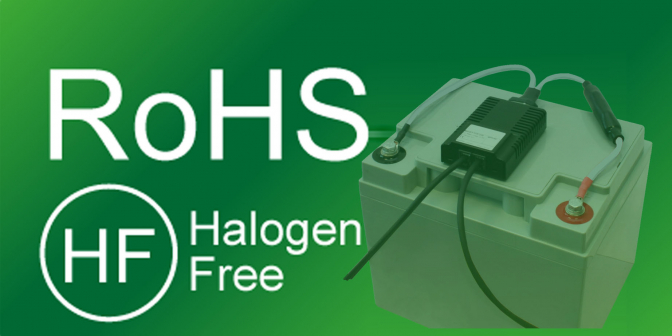Halogen-free cables are standard at BACS –
why is this important?
why is this important?

Halogen-free cables are standard at BACS –
why is this important?The European Union actively promotes the use of halogen-free cables and wires for safety and environmental reasons!
In the last newsletter we talked about halogen-free cables from BACS and focused on the issue of safety.
Link Newsletter 2023: BACS BC 5 flexible Halogen-free measuring cable | Generex
The reason for using “simple” cables containing halogen is low production costs. However, in addition to the “fire retardancy” argument, they also neglect important other aspects:
Cables and components containing halogen react in the event of a fire, creating a highly toxic and corrosive atmosphere. In addition, due to the corrosive nature of halogens such as fluorine, bromine or chlorine, technical equipment can fail due to corrosion even months after the fire has been successfully fought, even though they were never directly affected by the fire. To minimize this direct and indirect damage potential in the event of a fire, most professional users explicitly require halogen-free cables for their applications.
BACS is used almost exclusively in industry, the military or by other professional users where “operational safety” is a priority. In addition, it is rather rare that a BMS is actively observed. In practice, only automatically generated alarm messages are given the necessary attention. However, when these alarms are thermal, there is little time to prevent a fire. Therefore, anything that can prevent a fire is IMPORTANT for the user!

A flame-retardant, halogen-free cable provides more time for a reaction to thermal problems. Many end users of battery monitoring systems are now reacting based on negative experiences that showed them that a BMS does not necessarily protect against fire. As a matter of principle, they demand halogen-free cables in their tenders, regardless of the fact that this makes a BMS significantly more expensive.

The disposal of cables containing halogen is up to ten times more expensive than the disposal of halogen-free cables, as they have to be treated separately in order to protect the environment from toxic substances, because the substances deliberately used as fire retardants in production, such as chlorine, bromine or fluorine, cannot be used for obvious reasons conventional incineration plants and are still disposed of in landfills.
In summary, the price advantage offered by purchasing halogen-containing cables is eliminated as soon as you compare the subsequent recycling costs or even a fire with indirect damage.
In addition: The WEEE Directive (2012/19/EU), the Battery Directive (2006/66/EC) and the Packaging Regulation (94/62/EC), as well as many national laws in other countries outside the EU, require the user to pay disposal costs to be taken into consideration when purchasing. => Halogen-free cables are slightly more expensive to purchase, but ultimately cheaper during operation, maintenance and disposal than the inexpensive halogen-containing alternatives.

With the standardization at GENEREX on halogen-free measurement and data cables since 2014, we are raising the bar for the physical operational safety of BMS systems. With BACS, our aim is to deliver both the safest battery management system for the market for stationary applications - BUT also the system with the lowest ecological footprint!
Back to
Next Article